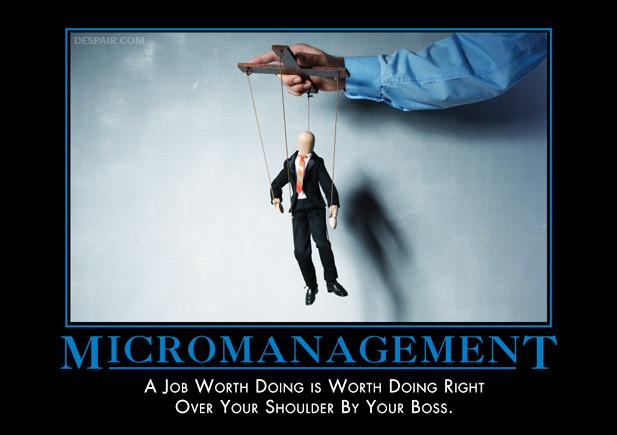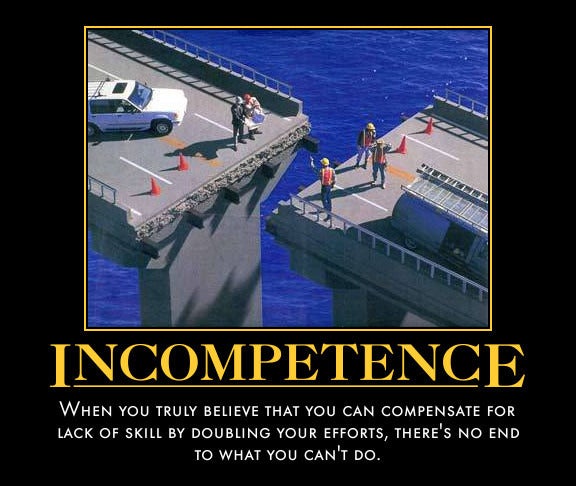As their career progresses, a manager’s skills should improve, a boss’s competencies should develop and a leader’s abilities should evolve.
Tragically, I’m going to be providing the breakdown of the worst boss I have had the misfortune to work for in my twenty-year career. Let’s call him Mr. Lumbergh.
But this story starts some 18 months prior. I was hired to work on a project. To put Mr. Lumbergh into perspective, he was the type that made it mandatory that everyone clapped and cheered when he walked into the office.
I cleared probation easily enough, and then I must have done something to piss off Mr. Lumbergh — because four months into the job, things started happening.
#1 – Bank Robbery

Mr. Lumbergh had always been what we called a bank robber, as in he would come in, steal all the credit, and leave everyone else holding the debits/deficits of a project.
Most of them, he arranged the robberies himself by being the first to volunteer his department and staff to carry out inane drivel of no value.
Imagine my surprise when he dropped by my desk and told me that I had to do the breakroom inventory (count how many packs of sugar, creamer, 3-in-1 Teh Tarik, were in the pantry every week), and check and restock the cleaning supplies. He had volunteered me for the job. I was annoyed, but I did it anyway.
Later on, I discovered that Mr. Lumbergh had told everyone that HE did the job himself, and how time-consuming and tired HE was because of it!
I don’t know how, but he robbed the bank, taking credit for “making the extra effort” to look after the pantry, and “getting the job done,” while I was the one actually holding the debit on keeping the inventory at par level.
Such a small, tiny insignificant thing, and Mr. Lumbergh took the credit. It was ridiculous.
And then I noticed it: He took the spotlight and credit for anything and everything that he could.
From counting breakroom supplies to marginal involvement in other department activities. Wherever he could steal the spotlight for even a moment, Mr. Lumbergh would. This was the first of many such things.
#2 – Micromanagement

I was hired for a specific job. I know what I am doing. I check in with my colleagues across the necessary departments and teams to make sure things stay on track and focused.
When Mr. Lumbergh arrived on the job, he suddenly swooped in on my role and started breathing down my neck for every little detail.
He would approve nothing without long exhausting explanations of basics that he should already be aware of. I could not get anything done or approved unless it was double-checked, triple-checked and then (for good measure) re-checked.
This would go to absurd extremes, where sick leave was rejected, and leave that was scheduled months prior was suddenly canceled. I was told to “suck it up and deal.” I learned quickly to say nothing about my personal life to anyone at the office because he seemed to know everything somehow, and reveal that later on.
It was around this time that I started hearing rumors that things were slipping, that the project was in danger of falling behind.
The rumors were that the boss was having too much “managing” to do, so could never get his own work finished. There were whispers that it was my fault because I needed excessive “guidance.” My first thought was “What the hell?!”
#3 – Openly Displayed Incompetence

Bad bosses generally display their incompetence openly and do not even realize that they are doing it. He would throw around buzzwords and catchphrases he’d heard based on a Google search and a YouTube video without understanding what they actually meant.
Mr. Lumbergh had low emotional intelligence and zero empathy and did not see employees as human beings. It was common for him to not answer a question, but give a non-specific answer about “The High Concept” or the “Long Term View.” After a non-answer, he would then insult and belittle your abilities and question your competency to do the job.
I remember the best example of this was when I asked him, quote, “What does the client want from this product?” The answer was “The client wants to make money.” To this day, I still do not understand what that means.
Phrases like, “You get my meaning?” or “Understand or not?” became a standard closing question. I would learn later that this was not to check my understanding but to ensure that when he could see things going wrong, he could protect his own ass.
#4 – The Ghost

My opinion of my boss hit rock bottom, and I was glad when he stopped trying to micromanage me. I carried on with my job.
The project was slightly behind, so we had to do two weekends of serious overtime, and finally the team had things back on track. Despite the workload, these weeks were blissful, because there was no micromanagement.
The spotlight for success should fall firmly on the team and those who had done the work — or so I thought. Mr. Lumbergh had of course been kept in the loop via email and Whatsapp. I figured I would hear back from him. Instead, I got ghosted.
Then we got word that a different project (managed by Mr. Lumbergh) had just been reviewed by senior management and scrubbed. He had ghosted that project and was now studiously assigning blame to everyone around him for its failure. Mr. Lumbergh had let the entire project down by failing to provide leadership, management, guidance or advice to its team.
When my project came up for review, I was hopeful that the team and I would be getting recognition for our efforts. Nope.
His total lack of leadership, management, overly abundant guidance, or advice (micromanagement) was disguised as “delegation.” I still don’t know HOW he convinced anyone he was the hero, because “I delegated to them, so that they could make sure that they could innovate and create what would make the client happy.”
Incredibly, after putting in extensive weekend overtime, the sn**ch buried a team in s**t, had zero accountability for it, and then came out smelling of roses by doing a bank robbery on the team’s project! I know he didn’t know s**t, because he was a Ghost!
#5 – The Political Officer

Image via the Scholarly Kitchen.
Mr. Lumbergh would make Palpatine proud with the way he manipulates his team. The “most valued” employees were always quickly invited to join an elite cadre. They have a private WhatsApp group, social meetings outside of work, complete with a secret handshake and cereal box-esque decoder rings. He was a real Political Officer.
Of course, the sycophants in this group get plum assignments and growth opportunities. Naturally, The Political Officer also worked to undermine/subvert/undervalue anyone who dared to stand up against him and his elite cadre.
When the sycophant is close to success, his tendency to micromanage determines how big of a bank robbery can take place (taking credit for his subordinate’s hard work), or whether one would be ghosted and left to the mercy of Senior Management.
That “other project” I referred to previously? Two cadre members made the ignominious walk of shame with a cardboard box of personal items before lunchtime, the same day their project got scrubbed. And Mr. Lumbergh never took any responsibility for it.
#6 – False Promises
 Image via Carrier Management
Image via Carrier Management
If he gets the credit for everything going right, you get the blame for everything going wrong.
False promises will regularly be made to get employees to take on a job/project and/or additional responsibility. Targets will change, timelines will alter, budgets will disappear. Objectives and goals will shift when they are about to be or have been achieved.
Looking after the pantry? That was supposed to be a win-win where I look after the pantry and in return…well I never got what I was supposed to get out of it.
I wound up paying for the pantry supplies for three months, then got my claims denied — because Mr. Lumbergh wouldn’t sign off. Of course, I stopped looking after the pantry, but at that point, his bank robbery was long forgotten and the debit slips were still in my hands.
#7 Feedback Happens to Other People

Smart bosses want feedback, dumb ones don’t want it. Mr. Lumbergh viewed feedback as a personal attack upon his leadership and competencies.
The Ghost, won’t give details but expects you to figure it out. The Micromanager won’t shut up about what and how to do it. The Political Officer talks in code, and riddles. Mr. Lumbergh had all three, and we had to figure out which “Mode” he was in.
At the time, he was semi-permanently in Ghost mode, and could not communicate verbally or in writing. Send WhatsApp, it has a double blue tick. Call and his number cannot be reached permanently. Put enough pressure on him for feedback would trigger an open display of incompetence.
The Endgame: Surviving with Zero Accountability

Fingers get pointed, blame gets shifted and somebody is the scapegoat (you). You are held “accountable” for… whatever it is. Even if you have never heard of it, aren’t working on it, and sometimes are not even aware said project exists.
How is this possible? My opinion is that it is a combination of the above. His master strategy seems to look like this:
He demonstrates that he knows buzzwords, jargon, catchphrases, and has just enough knowledge to be more of a hindrance than a help (#3). Add the micromanagement (#2) with non-answers that relate to “the high concept” and “long term view.” When he does a Ghost (#4), most people don’t question it, simply grateful that they can now get on with the job.
Of course, being the canny Political Officer (#5) that he is, Mr. Lumbergh has “his people” keeping him informed of progress so he knows how big a Bank Robbery (#1) he can stage — or whether it would best not to do one.
Mr. Lumbergh covered his ass from early on with phrases like, “You get my meaning?” and “Understand or not?” If things work out, “everyone wins”, if not, “that guy is dead weight,” and the cadre-turned-enemy are on the way out. No promises made have to be honored (#6), allowing him to ignore any and all feedback (#7).
The Sum of the Damage

The bad boss makes coming to work hell. They view themselves as entitled individuals who can do no wrong, but they don’t realise they are incapable of providing leadership or competency.
Bad bosses create unhealthy, toxic work environments that are emotionally draining and mentally damaging. Employees become demotivated and the turnover rate is incredibly high (where I used to work, it averaged 1 person a month). Nobody feels like they have a career. Just a paycheck without the opportunity to learn and grow.
Once upon a time, these bosses might have been good at a job, but they were clearly promoted based on how they did in that job, not whether or not they were suited to be in that management position that they have infected.
Good bosses are rare, much like common sense these days, rare enough to be considered a superpower. Employees are not going to be loyal unless they like their boss, and the likable boss is the one who will support, inspire, motivate and help their employees grow, making work experiences memorable and positive.
It is the people that make companies successful. All those strategies and business plans and visions and missions rely on engaged, motivated individuals who are as hard to find as a good boss.
For clarity’s sake, I’ve put up with a lot of crap — like corporate team building — but this guy, is the reason I just quit my job. You can read about the straw that broke this camel’s back in my next story.
You might also like
More from Real Skills
How I Saved Almost RM50,000 On Buying My First Car
Here's how this Malaysian man with a RM3,500 salary saved RM50,000 on his first car.
Angry M’sian Boss Demands Unpaid Overtime Over Raya, Causes 9 Staff To Quit
An anonymous employee at a local SME shares how a bad-tempered boss eventually caused 9 staff to quit before Hari …
I Studied In Chinese School As A Malay Boy, Here’s What I Learnt
Every time I used Mandarin outside of school, family members would come up to me at gatherings and ask me …


















